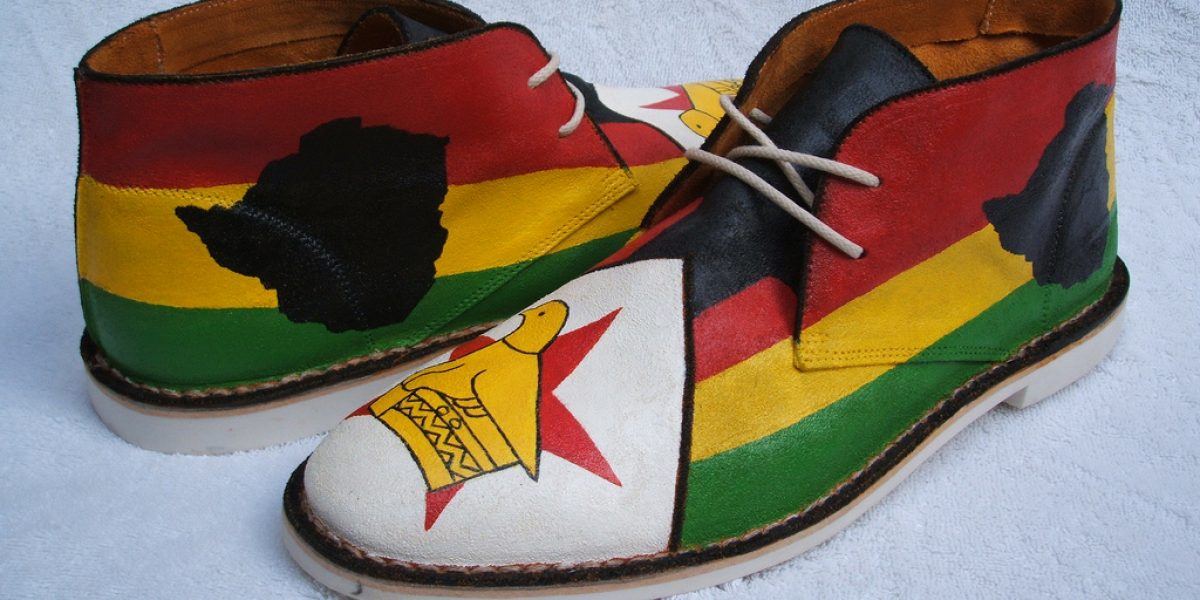In late May, the Zimbabwean army and police drove into the large informal settlement at Hatcliffe, outside Harare with bulldozers, and either burnt to the ground or flattened the 3,000 homes in which about 15,000 people lived. For days residents stayed amid the rubble, trying to protect salvageable possessions and hoping for relief. As we drove into the wrecked township, people’s possessions were piled up along the dirt road next to where their homes once stood.
Filthy babies lay amongst mounds of burnt wood and rubbish while their parents sat listlessly next to them, too traumatised to worry about hygiene. They had no shelter, running water, electricity and very little food. The local school and the medical clinic were also closed down during the operation.
Days after my visit, police returned and burned the remaining rubble and piles of possessions. The same story played out across the country in major and minor cities. Government newspapers reported that at least 22,000 street traders were arrested. And more than 200,000 people made homeless, according to the UN.
The action was part of the government’s ‘Operation Murambatsvina’, a Shona word meaning ‘drive out the rubbish,’ which has destroyed dozens of informal settlements and thousands of buildings across the country since it began in May. Zimbabwe’s President Robert Mugabe says the campaign aims to clean up the country’s urban areas and eradicate the flourishing black market that has arisen as a result of the country’s economic collapse. Since Mugabe claimed victory in recent elections, shortages of basic goods have grown severe and the value of the local currency declined steeply.
Managed in the same violent and abrupt manner as land resettlement, Murambatsvina destroyed the livelihoods of many urban poor who make ends meet by selling basic commodities. With winter nights near freezing and no alternative shelter, food or employment offered, many are asking, why now? The opposition Movement for Democratic Change (MDC) argues that the real reason behind the campaign is to punish the urban poor who voted for the MDC in the recent elections.
When I stopped in Hatcliffe, Alex Nhema was one of those who made his way towards my car. When I asked what had happened, he said angrily that the police had destroyed everything while keeping the people away at gunpoint.
‘They were very aggressive and violent and told us all that we had to take down our homes and leave this place. They said they would come back, and if any of the houses were put back they would burn all the possessions inside. They have done this because we voted for the MDC in the election,’ he said.
Trudy Stevenson, MDC member of parliament for Harare North, distributed blankets to the homeless after Hatcliffe was destroyed. ‘All of the [non-governmental] organisations are afraid to help because they believe that Mugabe will expel them from the country if they do,’ she said.
She maintained that the Hatcliffe settlement was not illegal and the people who built the makeshift shacks leased their plots from the government at a cost of 100,000 Zim dollars a year.
‘The World Bank even paid for the sewage and water services to be put in – look you can see the remains of the piping on the ground,’ she said pointing at concrete pipes strewn around.
Although police ordered residents to leave following the destruction of the settlement, the majority have not done so. ‘I don’t have anywhere to go,’ said Nhema. ‘So I will stay here where my home was. We were told that the police would take us to some place, but then they told us to go back to where we came from. I am from here.’
Some of the displaced have been taken to holding camps. Local priest William Guri is so far the only person allowed to visit one such compound guarded by armed police at a deserted farm 40km outside Harare. ‘They have nothing: no food, no shelter or anywhere to go and their health is worsening daily,’ he said. ‘The NGOs that went there to try and help were chased away, but I have been able to bring in some food. The people are being told they are being kept there while an alternative settlement is being found for them. But I think they will be there a long time.’
‘We cannot support them for much longer, as I’m running out of resources. When you go into the camp, the people are just sitting around idle. The kids are playing but the adults look really distressed.’








